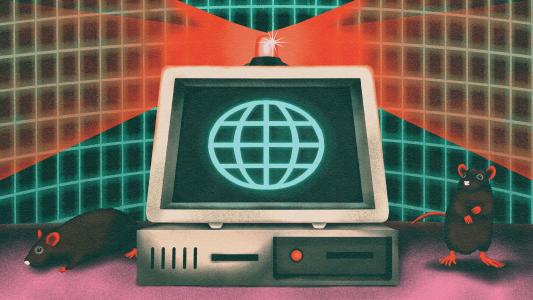While health officials scramble to treat the tens of thousands of people now infected with the novel coronavirus disease COVID-19, other experts are working tirelessly to tackle the virus from behind the computer screen.
“(T)he fighters of the battle are the doctors, nurses, and public health people in the field. They are the ones risking their lives,” Alessandro Vespignani, a computer scientist at Northeastern University, told IEEE Spectrum. “What we do as computer scientists and computational epidemiologists is provide them with intelligence to anticipate the move of the enemy.”
Analytical Approach
Vespignani’s contribution to the containment effort has taken the form of EpiRisk, a computer platform that simulates how the coronavirus could spread across 3,200 sub-populations in approximately 190 countries.
“We prioritized being informative over everything else.”
Soukarya Ghosh
His team at Northeastern University’s Laboratory for Modeling of Biological and Socio-technical Systems (MOBS Lab) regularly updates the simulation with new data on the coronavirus.
It pulls this data from publicly available sources, such as announcements from Chinese health authorities, and combines it with information on travel bans that could limit residents’ abilities to move between both adjacent areas and ones farther away.
Using EpiRisk, the MOBS Lab group created a list of the 25 countries at highest risk of importing new cases of COVID-19, which it plans to update throughout the outbreak as new data becomes available.
Knowledge Is Power
While Vespignani’s team attempts to predict the future of the coronavirus, a team of high school friends-turned-computer science undergrads is trying to keep the public informed about COVID-19’s present status.
They created TrackCorona, a website containing easy-to-digest information on the coronavirus, such as common symptoms, as well as near-real-time updates on its spread and officials’ containment efforts.
“We realized that this idea could potentially save lives by acting as a forewarning to those in dangerous regions, as the number of regions began growing at an exponential rate,” University of Virginia student Soukarya Ghosh told UVA Today. “So we prioritized being informative over everything else, laying out the website in a fashion that allows visitors to get real-time data without having to jump through hoops.”
Team Effort
Those are just two of the teams of computer scientists now engaged in what Vespignani described to IEEE Spectrum as “war time” mode: a hectic scramble to ensure that computer-powered insights into the coronavirus emergency evolve with the new data.
He told the outlet he’s been on global conference calls discussing the outbreak with upwards of 100 different research teams and agencies — and while he might view the health officials “in the field” as the true fighters in the war against COVID-19, it’ll likely require a combination of all these experts’ efforts to finally bring the outbreak to an end.






